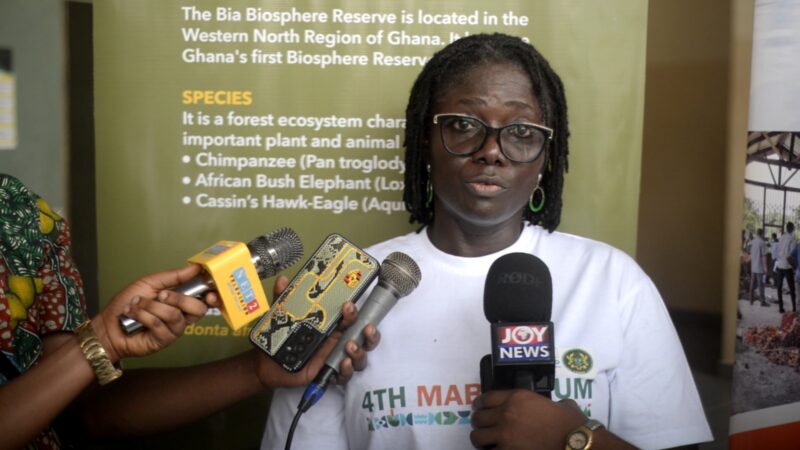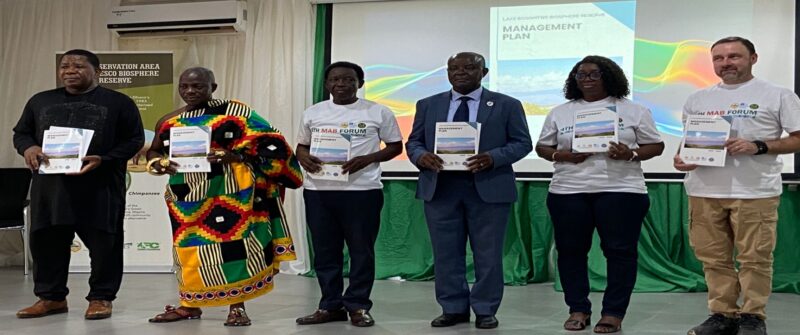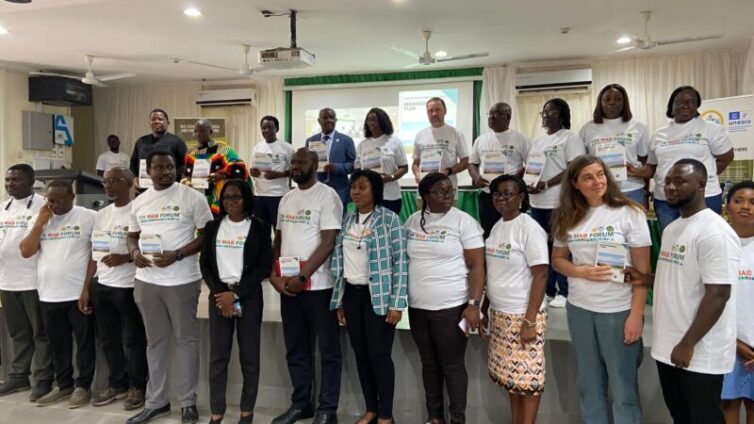
Audio By Carbonatix
Research by the Environmental Protection Agency (EPA) has revealed that the quality of Lake Bosomtwe is being degraded due to human activities.
Illegal mining, laundering, poor fishing, and unsustainable farming practices are eroding the water quality that sustains over 22 communities around the lake and are contributing to adverse climate change effects.
The situation has led the EPA, in collaboration with UNESCO, to develop a five-year plan to protect the lake. Lake Bosomtwe, a recognised biosphere reserve, supports an ecosystem that provides sustenance to over 65,000 people in the Ashanti Region.

This crater lake serves not only as a tourist attraction but also as a vital source of food and livelihood, supporting activities such as farming, fishing, and, unfortunately, mining.
The EPA has identified these activities as harmful, undermining the lake’s water quality and biodiversity, and contributing to climate change impacts.
Ashanti Regional Director of the EPA, Jackson Adiyiah Nyantakyi, highlighted that prolonged pollution in the biosphere reserve could diminish its ecological value, eventually rendering it unable to sustain life.

“The EPA’s assessment and research show that the lake’s quality is being degraded due to human activities, and this is not sustainable,” Nyantakyi said. “Illegal laundering, poor fishing practices, harmful farming methods, and illegal mining are to blame. We cannot wait until the lake degrades further before taking action. This intervention will cover three zones, including awareness creation and livelihood empowerment training.”
The EPA’s five-year “Lake Bosomtwe Management Plan” aims to protect and sustain the lake’s ecosystem and secure local livelihoods. The plan outlines three designated zones: a restricted area with no public access, a buffer zone with limited activities, and a transition zone where regulated activities are allowed.

Acting Director for Natural Resources at the EPA, Sheila Ashong, noted that the intervention will incorporate awareness campaigns and skills training to encourage sustainable farming practices and alternative livelihoods for community members.
“Committees will be created in the communities to work with stakeholders, as natural resource management extends beyond one institution’s capacity. Part of the intervention will involve community-driven action and livelihood empowerment programmes to provide alternative income sources, especially for fishermen. Awareness efforts will also encourage farmers to adopt sustainable practices,” Ashong explained.
Ghana recently held its 4th National Forum on Biosphere Reserves and Sustainable Development, themed "Synergising our Resources through Partnerships to Enhance Biosphere Reserves' Contribution to the Global Biodiversity Framework," to mark the International Day for Biosphere Reserves. The EPA aims to ensure continuous awareness of the biosphere reserve concept and foster stakeholder collaboration.

The forum, also known as the MAB National Forum, offered a platform for stakeholder networking and alliance-building, especially concerning research and funding opportunities. EPA Board Chair, Prof. Kwasi Appeaning Addo, emphasised the importance of stakeholders, particularly young people, in managing biosphere reserves and their role in achieving the Sustainable Development Goals (SDGs).
“Ghana is proud to have three designated biosphere reserves, each playing a vital role in protecting biodiversity, promoting sustainable livelihoods, and providing opportunities for research, education, and capacity-building. Our challenge is to ensure these biospheres maintain their core values and expand both in impact and in number. Achieving sustainable management of our biosphere reserves requires collaboration at all levels—across ministries, agencies, private organisations, and academic institutions,” Prof. Appeaning Addo stated.
Latest Stories
-
Firefighters subdue blaze at Accra’s Tudu, officials warn of busy fire season ahead
21 minutes -
New Year’s Luv FM Family Party in the park ends in grand style at Rattray park
25 minutes -
Mahama targets digital schools, universal healthcare, and food self-sufficiency in 2026
33 minutes -
Ghana’s global image boosted by our world-acclaimed reset agenda – Mahama
53 minutes -
Full text: Mahama’s New Year message to the nation
54 minutes -
The foundation is laid; now we accelerate and expand in 2026 – Mahama
1 hour -
There is no NPP, CPP nor NDC Ghana, only one Ghana – Mahama
1 hour -
Eduwatch praises education financing gains but warns delays, teacher gaps could derail reforms
1 hour -
Kusaal Wikimedians take local language online in 14-day digital campaign
2 hours -
Stop interfering in each other’s roles – Bole-Bamboi MP appeals to traditional rulers for peace
3 hours -
Playback: President Mahama addressed the nation in New Year message
3 hours -
Industrial and Commercial Workers’ Union call for strong work ethics, economic participation in 2026 new year message
5 hours -
Crossover Joy: Churches in Ghana welcome 2026 with fire and faith
5 hours -
Traffic chaos on Accra–Kumasi Highway leaves hundreds stranded as diversions gridlock
5 hours -
Luv FM Family Party in the Park: Hundreds of families flock to Luv FM family party as more join the queue in excitement
5 hours

